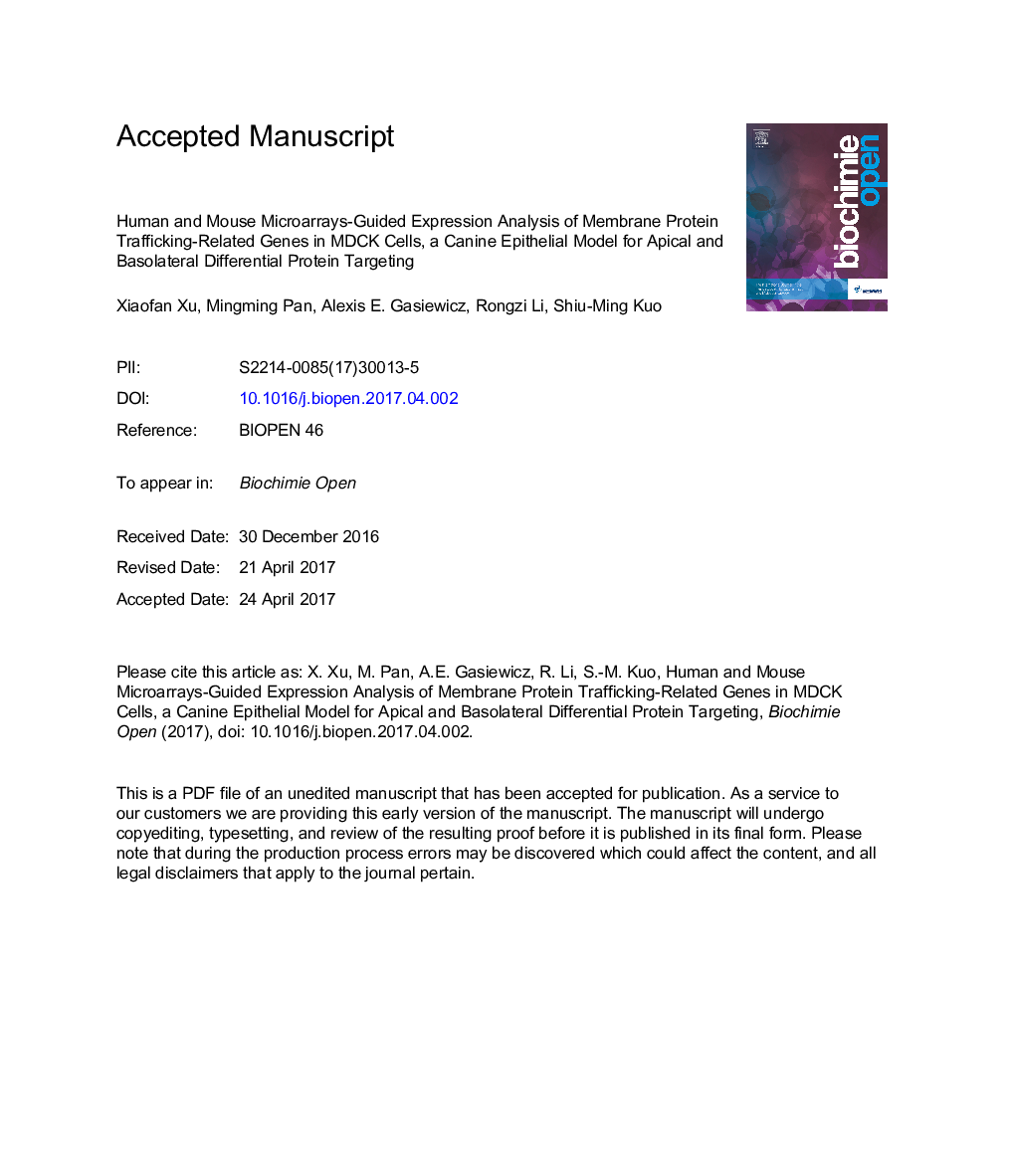| Article ID | Journal | Published Year | Pages | File Type |
|---|---|---|---|---|
| 8306090 | Biochimie Open | 2017 | 27 Pages |
Abstract
MDCK cells are widely used to study the differential targeting of membrane transporters to apical and basolateral membrane but its canine origin limited the commercial tools available for the analysis of protein trafficking machinery. Because apical and basolateral membranes are only found in differentiated epithelial cells, genes critical for differential targeting may be specifically up-regulated upon MDCK cell differentiation. To search for these genes, a cross-species screening strategy was used. We first analyzed the human microarray data for protein trafficking-related genes that were up-regulated in colon carcinoma Caco2 cells upon differentiation. The results of mouse 44K gene expression microarray analysis were then used to extract additional candidate genes that showed higher expression in normal colon epithelium compared to primary embryonic fibroblasts. Finally, NCBI genomic sequence information was used to design RT-PCR primers for 13 candidate and 10 negative control genes and used to analyze MDCK cells at 2, 13 and 17 days after seeding. To determine whether the gene up-regulation was specific in epithelial differentiation, we also performed RT-PCR on rat non-differentiating intestinal IEC-6 cells and mouse C2C12 cells, a differentiating myoblast model. Of the 13 candidate genes, 3 genes, SDCBP2, KIF12, KIF27, met all criteria of specific up-regulation in differentiated MDCK cells. In addition, KIF13A showed up-regulation in differentiated MDCK and C2C12 cells but not in IEC-6 cells cultured for the same duration. The functions of these genes need to be analyzed in the future. This cross-species screening strategy may be useful for other non-human, non-rodent cell models.
Related Topics
Life Sciences
Biochemistry, Genetics and Molecular Biology
Biochemistry
Authors
Xiaofan Xu, Mingming Pan, Alexis E. Gasiewicz, Rongzi Li, Shiu-Ming Kuo,
